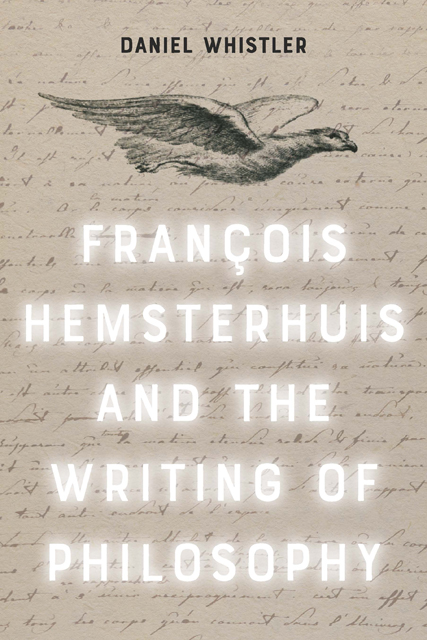Chapter Four - Writing after Materialism
Published online by Cambridge University Press: 03 June 2023
Summary
The nation is superstitious. … Materialism is held in horror.
Diderot on the Dutch Republic (1975–: 24.140)Hemsterhuis – a Dutchman, who wrote in French but was only properly esteemed by Germans – [was] so familiar with the culture of the Encyclopaedists, he accordingly dared to take the rights of speculation, ethics, art and religion away from them.
A. W. Schlegel (1964: 3.83)§15 Diderot Reads Hemsterhuis
In June 1773, Hemsterhuis met Diderot. The latter was visiting Dmitri Gallitzin at The Hague on his way to Russia, and Hemsterhuis found an opportunity to hand over a copy of the Lettre sur l’Homme. When Diderot returned from Russia a year later, he gave the copy back full of annotations, remarks and suggestions, and, appended to these marginalia (‘some 20,000 words that are in effect a dialogue’ [Wilson 1972: 648]) – was the following message scrawled on two blank pages at the end of the book:
Reading your work has given me great pleasure. There are some very beautiful, new and subtle ideas. It is in this way that I spoke of it to Prince Gallitzin. But if you had lived two or three years in our capital, with intimate links to my friends, you would have come across a language in use, completely ready to lend itself to your ideas; and your work would have been infinitely easier and more pleasant to read. But on the other hand, it would have compromised you in a quite singular way. I am thinking of the fact that being better read and understood in this country, it would have drawn upon you a violent persecution. … You are, in fact, one example among many others of those for whom intolerance has constrained their veracity and who have taken on the philosophy of a harlequin’s dress, such that posterity alone – unsettled by their contradictions of which it does not know the cause – will be able to judge their genuine sentiments.
The Eumolpidae made Aristotle accept and then reject final causes. At one point Buffon sets down all the principles of the materialists; elsewhere he advances completely opposed principles.
- Type
- Chapter
- Information
- Francois Hemsterhuis and the Writing of Philosophy , pp. 157 - 196Publisher: Edinburgh University PressPrint publication year: 2022



